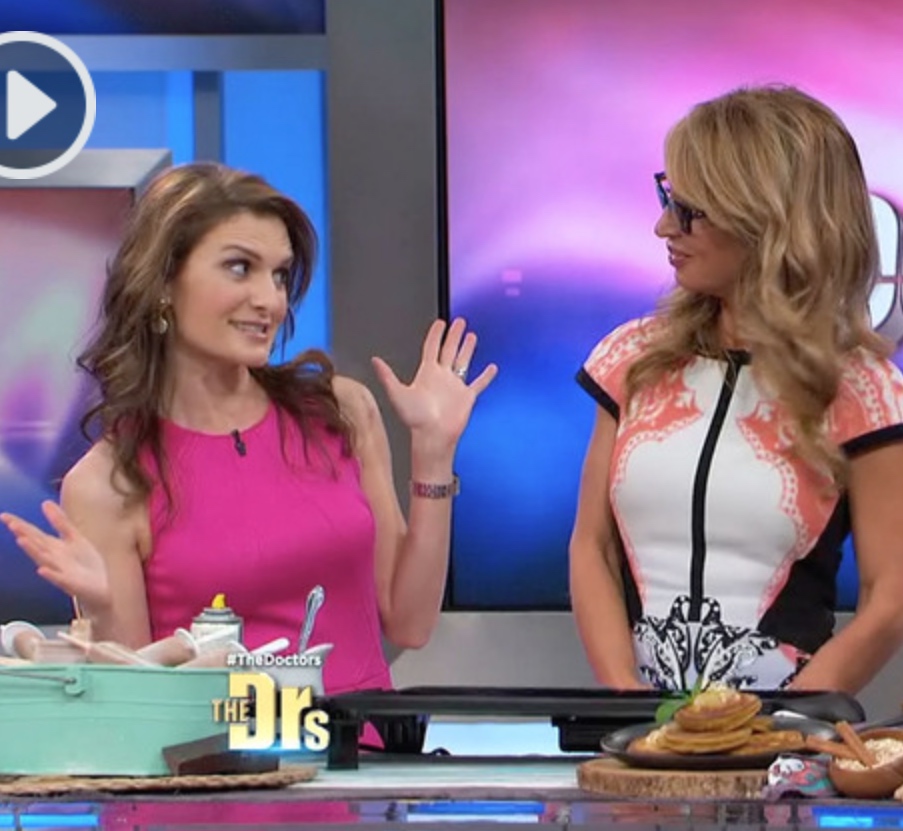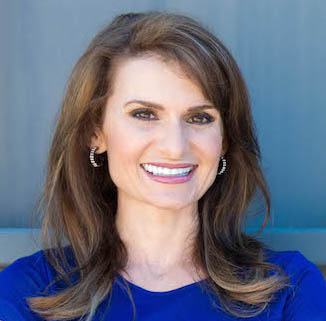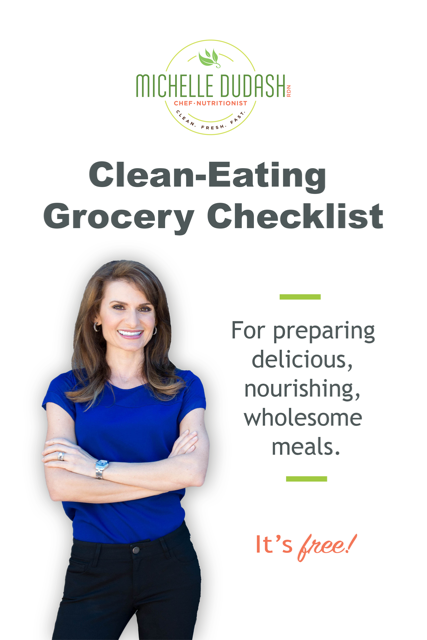TV Chefs: How to Cook on TV

Recently I presented a webinar hosted by the International Association of Culinary Professionals: Spreading Your Message with Cooking Segments on TV that Sizzle (aka how to cook on TV).
Here is the complete slide deck where you can view my key points and images: Cooking on TV_IACP2017 V2.
If you want to be a TV chef or cooking show host, my tips from more than a decade of cooking on TV will help you get there!
Here are some questions that were asked during the webinar, plus my answers.
Do you get paid for all (or any) of your TV segments or are you just using this as exposure?
Most local TV shows do not pay for TV chefs to appear on their show. If you’re lucky, a show may cover your grocery expenses. I’ve only been offered that by a smaller scale nationally syndicated show where I appeared numerous times. Large national shows sometimes have food stylists and then all of your food props will be taken care of by the show.
When a client of mine sponsors my TV cooking segments, then I am paid for my time to prep for and appear on the show and include their product. I include clients in about half of the TV segments that I do. In my non-sponsored segments, I am glad to do it for exposure and practice, plus I’m already there—it’s fun.
The big national shows may pay TV chefs for their hotel room, possibly airfare, ground transportation to the studio and back, and maybe even a meal.
Besides getting exposure, I promote my book or my Clean Eating Cooking School meal planning program by way of demoing a recipe.
Also, my goal is to also be a host of a television show, so I love being able to keep appearing as a guest on TV. Practice makes perfect. Being on TV improves your public speaking skills and makes you more comfortable adlibbing. I also enjoy working on my standup comedy routine during segments.
A regular occurring contributor on a big national show may receive payment for their appearances.
How do you track down the name of the producer who works on the cooking segments, call the studio?
Go on the station’s website and click on the contact page. Call the station’s main desk and ask for the email and first name of the booking producer for the show you want to pitch. Some shows have a general news desk hotline voicemail or inbox that you can also send things to. But it’s better to have the email of the exact person you are trying to pitch. If you know someone else who is on that show, ask your contact for the producer’s contact info. Or if you know the host, oftentimes hosts will accept pitches.
You can also look on Twitter and Instagram. A lot of producers hang out there. That is a good way to get to know them. You can even pitch by Tweets to get the conversation going.
There are also lists you can purchase, especially for the national shows. But if you’re just starting out, a free phone call may be all it takes.
Do you ask the producer what their demographic is so you can tailor pitches to that audience?
I have never asked a producer that before pitching. You can figure out the show’s demographic by watching the show and see what kind of stories they air. Or go on the website and see what they are covering. You could also contact the show’s sales department and usually they will have a slide deck that includes all of the demographics. After you’ve been on the show, you could ask the producer in a casual conversational way and I’m sure they’d be glad to share that info with you.
How far in advance should you pitch a producer?
For local TV, up to one month in advance is great if you have specific timing you want to coincide with. 2-3 weeks can also be enough. Sometimes even 1 week or a few days for really newsy topics works. Some shows, especially those with kitchen sets, have chefs on their show every day, so they are always looking for good people who can cook on TV.
Is 30-45 minutes really enough time to get set up?
I prefer having a solid 45 minutes to set up for a cooking segment, even when I have my assistant with me. Usually I appear at the top of the show (the first segment) and the show includes me in a tease before the show starts, so I like to have everything ready. That gives you enough time to also use the restroom, check your hair and makeup, take a few snapshots of you and your props, do an Instagram story, and double check all of your props again. If you don’t have anyone helping you, you may want a full hour if you will be at the top of the show.
Many shows tell you to arrive 30 minutes before the show starts, but I always ask for 45 minutes. Usually producers are totally fine with you arriving early, as long as they aren’t shooting another segment in the same studio during that time.
I have all of my food prep done at home the day before, so the only thing left for the studio is plating and maybe cutting any foods that would oxidize.
You might also enjoy:
Watch Michelle’s best videos of her cooking on TV
Check out Michelle’s sizzle reel–a showcase of her videos cooking on TV


 I'm a chef nutritionist, not the food police. I eat cookies but make sure to eat my broccoli too.
I'm a chef nutritionist, not the food police. I eat cookies but make sure to eat my broccoli too.

